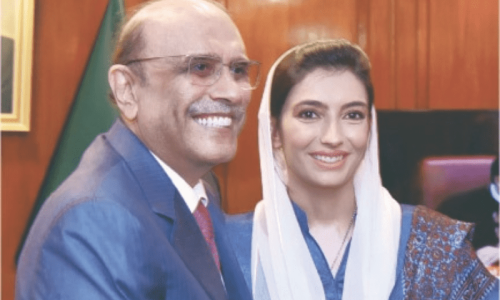LAHORE: The Pakistan India People’s Forum for Peace and Democracy (PIPFPD) has condemned the ceasefire violations and firing on the Line of Control (LoC) and the international border or working boundary along the border areas of India and Pakistan.
A joint statement issued by the PIPFPD, Pakistan chapter, chairperson I. A. Rehman and Indian chapter’s co-chairpersons Anuradha Bhasin Jamwal and Asha Hans on Friday said though the issue was highlighted in the meeting of the prime ministers of both the countries in Ufa, Russia on July 10 there was still a lack of political will from both sides in addressing the issue.
The PIPFPD said in the last two years, there had been nearly 800 recorded incidents of ceasefire violations in the border areas between India and Pakistan and 11 such incidences in July alone. The recent firing last week left one dead and 16 injured on the Indian side in Rajouri and Poonch sectors and four dead and five injured in the Sialkot Chaprar and Rawalakot’s Neza Pir sectors in Pakistan.
Also read: Indian ceasefire violation against spirit of Ufa understanding: FO
According to PIPFPD chapters, the ceasefire violations have adversely impacted the lives of people living in border areas and their access to education, health services, transportation, emergency and other basic services is consistently unavailable or disrupted. The agriculture-based economy has suffered severely, impacting people’s livelihoods. Security fencing laid by the security agencies in the middle of cultivable land has impacted crops and led to large parts of land lying unused. Local and migrant workers are unable to work in the fields due to fear of firing and shelling, leading to large-scale migration and displacement.
The schools are regularly suspended and turned into relief camps until peace is restored and these camps are in a dismal condition; food, water and hygiene facilities are inadequate, forcing people to return to their homes before they are declared safe. While some areas see major delay in relief, compensation and rehabilitation policy for the affected people, no such measures even exist in other villages.
The vulnerability of these border areas is used to gain political mileage. The armed forces and the media of both countries indulge in irresponsible blame-game and trade of allegations, which ultimately harm only the citizens and lead to escalation of conflict.
The PIPFPD also gave the following recommendation to attain permanent solution to the issue.
The “flag meetings” should be immediately restored along the contacts between the Director General of Military Operations (DGMO) of India and Pakistan. Immediate meeting of national security advisors (NSAs) of both the countries should be held as decided in Ufa and a structured dialogue between India and Pakistan should be resumed. Any talks between the two governments must involve the border communities who are directly affected by the conflict and have a role to play in finding out a meaningful solution. The governments and media houses of both sides must realise that sensationalising the insensitive political statements and instigating barbs will only lead to escalations that costs more to the civilians and security personnel and will contribute nothing to building peace between the two countries. Both the governments must seek and employ third-party impartial and independent watchdog mechanisms involving journalists, retired judges, prominent civil society members and parliamentarians on the border & LoC to find the factual truth behind these firings. There should be deeper discussions and deliberations on the ceasefire agreement of 2003 and its relevance in the current day’s context within civil and political circles.
Published in Dawn, July 25th, 2015
On a mobile phone? Get the Dawn Mobile App: Apple Store | Google Play














































